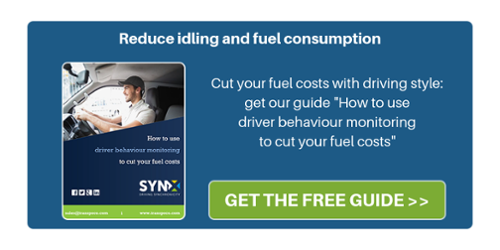
If you are serious about saving fuel and cutting your operating costs, you must have at least considered how your fleet drivers can avoid idling on the roads. Despite it looking like a trivial strategy at first glance, the upside is it is actually something very positive to achieve at literally zero cost. You can do something as simple as communicating to your drivers the necessity of avoiding idling or draft an ad-hoc idling policy, and, if they fully commit to the proposals, you will see the results for yourself soon enough.
But what may very well be on the horizon is the prospect of an idling law, or, in other words, because of environmental concerns and emissions targets at a European and global level, idling may soon be sanctioned by police and local authorities with costly financial penalties. The UK environment secretary Michael Gove recently said he supported calls from some councils to introduce stronger measures to tackle idling engines, which can cause even more pollution than a moving car. The government, as a consequence, is evaluating proposals to give more power to police and local authorities to impose penalties on drivers who idle. As is stands, the only penalties in force are a £20 or £80 fine, which is triggered only if drivers ignore their initial warning and idle for an additional minute.
As Fleet News revealed, attitudes toward idling seems to vary according to county in the UK: the Westminster Council leader thinks authorities need to send a strong message in the event of persistent idling, and considers a successful deterrent for company vehicles caught idling ought to be somewhere in the region of a four-figure fine. Camden Council warned a total of 400 drivers for idling, but issued no fines despite enforcement officers invested with the power to do so in March last year. Eighteen local authorities in London have allegedly noted idling incidents and have engaged with drivers in order to ask them to switch their engine off when stationary. Islington council have also been taking anti-idling action, too, stating that 80% of drivers asked to switch off their engine actually did so if requested to in a friendly way.
Environment secretary Michael Gove told The Times that instant fines for repeated offenders should be considered a viable solution to the problem and this involves increasing the power of enforcement for local authorities so long as it is applied correctly.
This action taken by the Government is certainly going to have an impact and help ensure drivers turn off their engine when it is not necessary to keep them running, such as when parked, for example. Some of the fines proposed for repeat offenders, of around £1000, will become a major concern for companies and couriers.
If you haven’t looked into eliminating idling yet, you probably need to start. Not only because it is likely to become a legal requirement fairly soon, but for the sake of the environment and for the difference it can make to your fuel bills. If you don’t know where to start or do not have an effective and coherent strategy, contact us and we will show you how idling can become one less headache.



